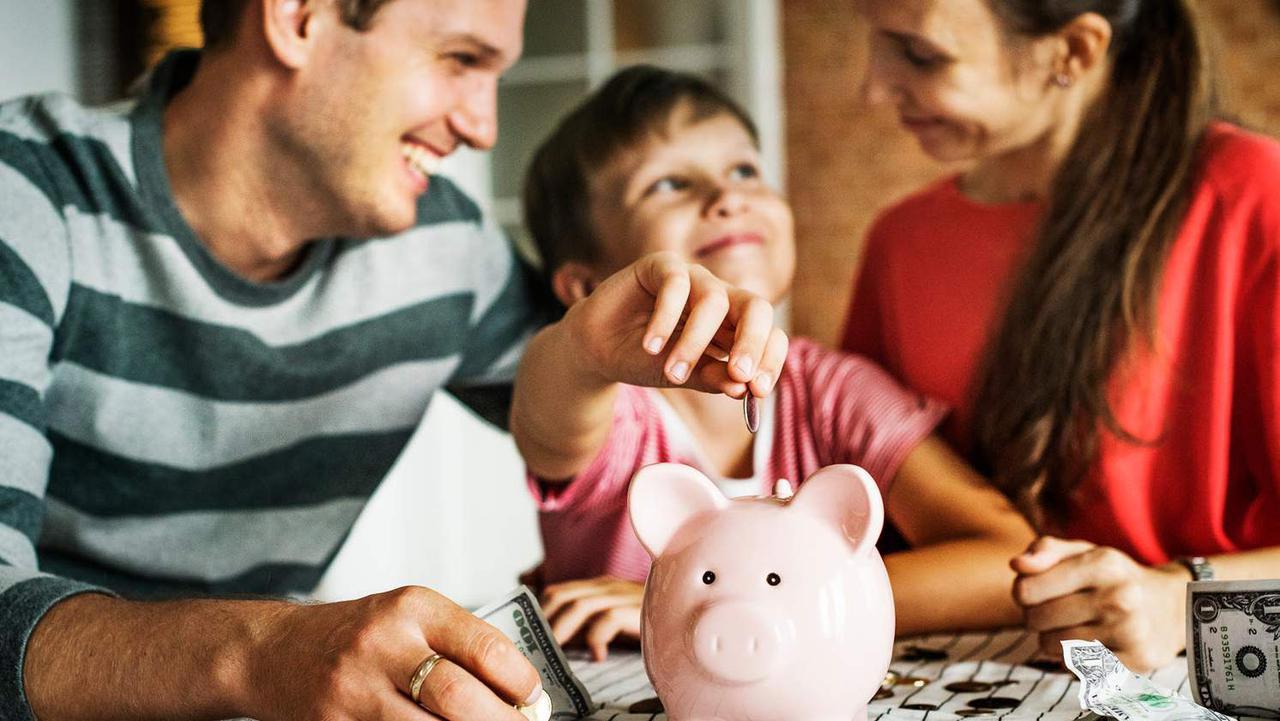
Money is a very significant part of every family, that impacts many facets of our life. We use money, discuss it and handle it every day, and children very quickly learn about its importance. That’s why it’s necessary to think about how you want to teach your kids about money - because they’re learning through your actions whether you’re aware of it or not. This isn’t a bad thing, and in fact can be a positive tool if you’re intentional about the way you role model healthy financial habits and attitude towards money.
This article will give a brief overview of how to teach your kids about money, from modelling behaviour in the early years, to practicing using it (and even earning and saving it) as they get older.
To keep on top of your finances, read about the Family Tax Benefit and make sure you’re getting what you’re entitled to.
Talking about money in your family
Long before children can talk, they are listening to, and learning about, everything around them. So being conscious about how you talk about money, even around babies, is very important. Try to keep it positive, factual and non-emotive - if you need to discuss a stressful financial situation make sure it’s after the kids are in bed.
You want kids to understand what money is for, but you don’t want them to feel stressed about it or think it’s what your life revolves around; you want to seem in control and model creative solutions to problems (eg. we can’t buy that, but we can make it/something similar at home). As they get older, explaining how much things cost and involving them in the process of scanning items and paying for them will help them to slowly develop an understanding of transactions.
Earning and saving
You can illustrate the concept of saving by having a clear jar on your table that you slowly add coins to over time, saving towards a specific family treat or activity. Explain that once there are enough coins, you’ll all go to a café or get ice cream, but you need to wait patiently. When you’ve saved the desired amount, have them help or watch as you use the coins to buy the experience you saved for, so that they understand once you’ve used the money it’s gone.
As they get older, they could have their own piggybank to save towards something of their own choosing.
Depending on your family values and parenting approach, you could also begin to offer small amounts of cash for jobs around the house and property such as weeding, pruning or lawn mowing, to show your child that money is earned. You could also consider helping them set up their own business (childrens business ideas article) - from walking dogs to selling baked goods, this will really get them on their earning and saving journey. If you decide to give your child pocket money, hopefully the foundations you have laid will mean they know how to use it responsibly.
Spending money
Children learn through play and doing, so as they get older you could give them opportunities to buy things when you’re shopping with them. Tell them how much an item costs, then give them the physical cash to pay for it and support them to communicate with the cashier over the transaction.
You’ll notice that they start to play games in which they mimic these experiences, which is healthy and normal – you could even find a cash register toy and make fake coins and notes for them to play with. Handling money and getting used to paying for things helps children to learn, even in play, and feel more confident with these experiences in reality.
It’s also wise to model generosity, by showing kids how to donate to charity boxes outside the supermarket, and helping them to do the same with their saved money- even if it’s a very small amount. Including giving as part of your financial life will translate to generosity becoming a natural part of theirs.
Money is a huge force in all our lives so teaching kids to use it for the good of themselves and others is valuable parenting work, that will surely pay off.
To help children learn many other important life lessons, consider searching Toddle - the most comprehensive childcare centre search database in Australia - for the right childcare centre for you.